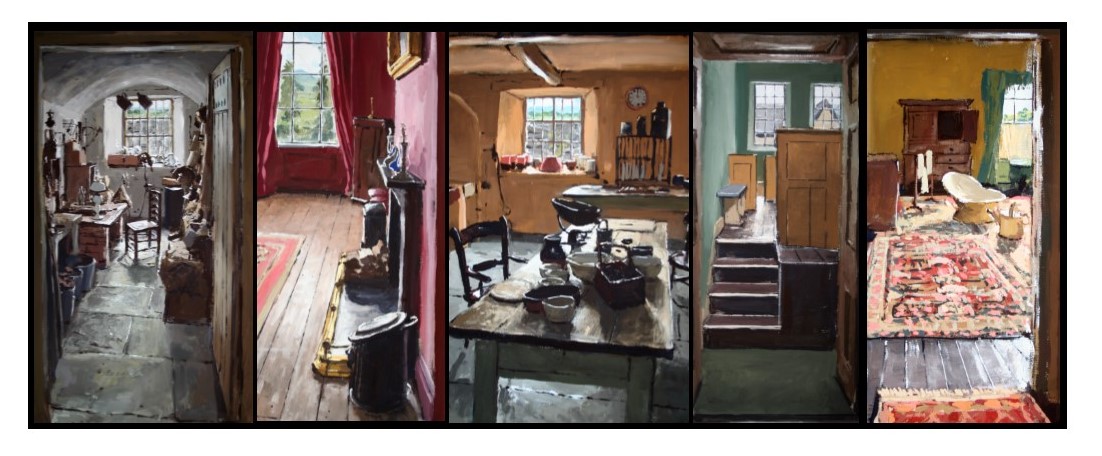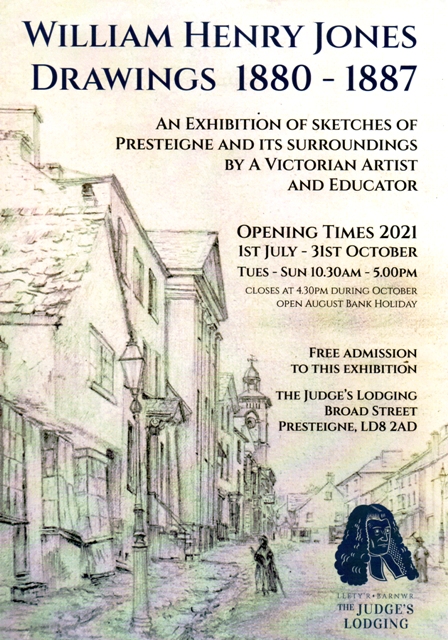after her coronation in 1837? Have a parliamentary meeting? Have tea with all the royal dignitaries? No – she gave her dog, Dash, a bath.

William Henry Jones- Artist and Educator
This exhibition is a simple homage to a man who loved to paint and who made a career out of sharing his passions by teaching.
William Henry Jones, born in Birmingham to a working family, took himself off to live in this area as a young man. He lived with family, sketched what he saw whilst out and about, and learnt to develop his artistic skills.
He continued this interest throughout his life and spent many happy years capturing the glories of Devon’s landscapes, his final home, in his spare time from his career in teaching. On his death, he left over 400 paintings and sketches, and had achieved status as a member of the British Watercolour Society, the Birmingham Watercolour Society and the Torquay & South Devon Art Society.
The sketches, paintings and objects in this exhibition are all kindly lent to The Judge’s Lodging by William’s granddaughter, Bryony. She never knew her grandfather, but has taken it upon herself to make sure his simple story is told and his art is shared.
